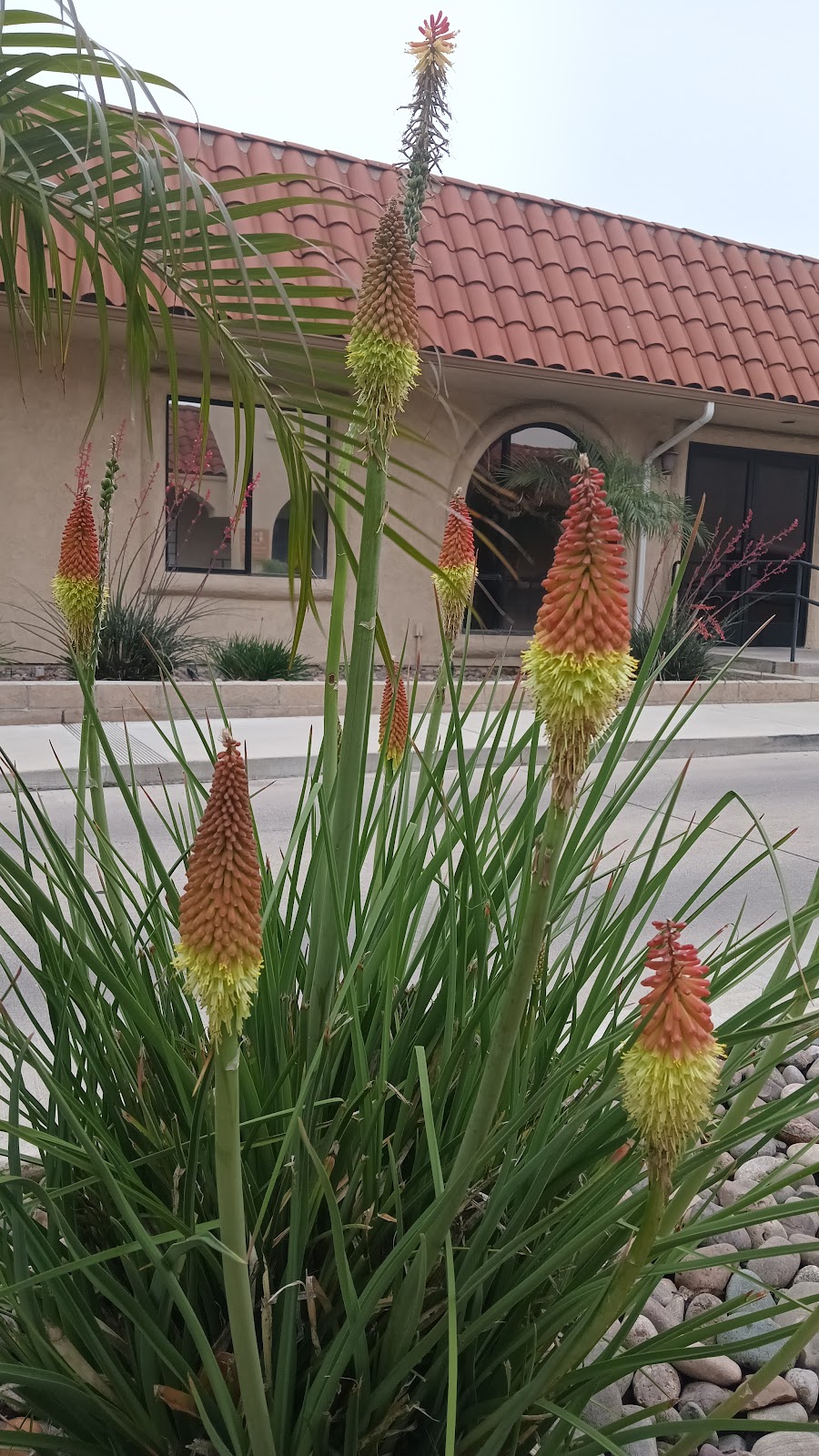MFI Recovery Center

Overview
MFI Recovery Center is a substance abuse treatment center for people seeking treatment near Riverside County. As part of their treatment modalities for recovery, MFI Recovery Center provides 12-step facilitation during treatment. MFI Recovery Center is located in Banning, California, accepting cash or self-payment for treatment.
MFI Recovery Center at a Glance
Payment Options
- Cash or self-payment
- Private health insurance
- Medicaid
- Payment assistance (check with facility for details)
- State-financed health insurance plan other than Medicaid
Assessments
- Comprehensive mental health assessment
- Comprehensive substance use assessment
Age Groups
- Young adults
- Adults
- Children/adolescents
Operation
- Treatment duration
- Private non-profit organization
Accreditations
Commission on Accreditation of Rehabilitation Facilities (CARF):

CARF accreditation is a globally recognized certification for rehabilitation and human service organizations. It signifies that an organization meets high-quality standards and is committed to providing top-level care. Achieving CARF accreditation involves a rigorous evaluation process, including on-site surveys. This accreditation enhances an organization's reputation, instills trust in clients and funders, and encourages ongoing excellence in the field.
Registration: 210056
SAMHSA certification for opioid treatment program (OTP):
SAMHSA's Opioid Treatment Programs (OTP) accreditation is a prestigious recognition that signifies a program's compliance with stringent standards and guidelines established by the Substance Abuse and Mental Health Services Administration (SAMHSA). This accreditation demonstrates an OTP's commitment to providing high-quality, evidence-based care for individuals struggling with opioid use disorder (OUD). It serves as a trusted symbol of accountability and excellence, assuring patients, families, and communities that the OTP offers safe, effective, and comprehensive treatment options for OUD.
State department of health:

Government agencies issue State Licenses, granting permission to rehabilitation organizations to conduct their business operations lawfully within specific geographic regions. Generally, the particular rehabilitation programs offered by a facility and its physical location dictate the necessary licenses needed for legal operation.
Treatment At MFI Recovery Center

Conditions Treated
Mental health treatment:
Mental health treatment involves a range of therapeutic approaches, provided by licensed professionals, to address mental health challenges. It includes psychotherapy, medication, and holistic practices to help individuals manage conditions, improve coping skills, and enhance overall well-being. The goal is to empower individuals to lead fulfilling lives and reduce the stigma surrounding mental health.
Alcoholism:
Alcohol addiction is when a person becomes physically and mentally dependent on alcohol, leading to mood swings, impulsive actions, intense cravings, and withdrawal symptoms. Treatment includes supervised detox, therapy, and support groups. It's important to note that rehabilitation doesn't "cure" alcoholism, but it helps individuals better manage their addiction, regain their ability to function in daily life, and improve their overall well-being.
Opioid Addiction:
Opioid rehabilitation centers focus on aiding individuals in overcoming opioid addiction, whether stemming from illegal substances like heroin or prescription medications like oxycodone. These facilities provide a comprehensive approach that combines medical detoxification and ongoing physical care with intensive therapy to address the root causes of addiction.
Substance use treatment:
Substance use rehabilitation is a structured program aimed at assisting individuals in overcoming their dependencies on drugs or alcohol. Through a combination of medical detoxification, counseling, and various therapeutic approaches, these programs strive to address the physical and psychological aspects of addiction. The goal is to equip individuals with the knowledge, skills, and support necessary to attain lasting sobriety, while also working to identify and address the underlying issues contributing to substance misuse. By fostering a supportive environment, substance use rehabilitation centers provide a pathway towards a healthier, substance-free life.
Co-occurring Disorders:
Dual-diagnosis rehabs are usually the appropriate solution to treat co-occurring mental health and substance abuse disorders. These facilities typically employ medical and behavioral experts who use a range of interventions, together with the right healing environment, for you to achieve and sustain long-term recovery. Treatment usually includes evidence-based therapies (like cognitive behavioral therapy), recovery support meetings, 12-step facilitation, psychoeducation, skills training, and group therapy.

Levels Of Care
Partial Hospitalization Program:
A Partial Hospitalization Program (PHP) is a structured short-term intensive rehabilitation service primarily aimed at individuals with acute symptoms that are challenging to manage but do not necessitate round-the-clock care. PHPs typically run 3-5 days a week for about 6 hours each day, from 1 to 6 months, offering structured activities such as individual and/or group therapy. While some PHPs offer residential facilities allowing patients to stay overnight, others operate on a non-residential basis, enabling patients to return home each evening.
Intensive outpatient treatment:
Intensive outpatient (IOP) supports clients in maintaining their sobriety by providing tailored, high-quality care that adapts to their changing requirements. Clients participate in numerous weekly treatment sessions, generally receiving between nine to twenty hours of outpatient care. As clients achieve stability, the treatment frequency and intensity gradually diminish. Many intensive outpatient rehabilitation centers offer a range of services, including addiction counseling, training in life skills essential for recovery, and medication-assisted treatment (MAT). Additionally, evidence-based complementary therapies are frequently integrated into the program.
Detoxification:
Detoxification, often called detox, is like a reset button for the body after someone has been using drugs or alcohol. Its main job is to help people who want to quit these substances by easing the discomfort they might feel when they stop. Think of it as a way to clean out the harmful stuff in the body when someone has been using drugs or alcohol too much. Detoxification aims to make the process of quitting safer and less painful for the person.
Aftercare:
Aftercare treatment refers to the continued support and care that individuals receive following the completion of their primary treatment program for substance abuse or addiction. This phase aims to aid individuals in maintaining their sobriety, improving personal skills and coping strategies, and integrating back into society. Aftercare can include ongoing therapy, support group meetings, education, and monitoring, which are crucial for preventing relapse and promoting long-term recovery. Through a combination of community support, accountability, and personal development, aftercare provides a structured pathway for individuals to continue their recovery journey in a supportive environment.
Halfway house:
A sober living home offers a supportive environment where individuals in recovery provide mutual support as they share household responsibilities. Residents participate in 12-step programs and offer accountability for sobriety. To remain in men’s or women’s sober living, individuals must remain drug and alcohol-free, contribute to chores, attend support group meetings, and help cover expenses to live in the home.
Outpatient:
Outpatient programs cater to individuals who are in good medical condition and are not at a heightened risk of relapse, including those who have successfully finished their inpatient treatment. These programs usually build upon clients' existing treatment strategies, providing ongoing addiction counseling and educational support for recovery. Individuals who enter outpatient care right after detoxification may also undergo medical and psychological evaluations, followed by the creation of personalized treatment plans. Most outpatient rehabilitation centers offer various levels of care tailored to meet each client's specific needs.

Treatment Modalities
12-step facilitation:
12-Step Facilitation is a structured approach to recovery used in many rehab facilities. It's rooted in the principles and practices of Alcoholics Anonymous (AA) and its 12-step program. The facilitation process promotes abstinence and supports individuals in becoming actively involved in 12-step self-help groups. The approach emphasizes personal responsibility, spiritual growth, and the importance of peer support to maintain sobriety and prevent relapse. By guiding individuals through each step, 12-step Facilitation aids participants in understanding the underlying causes of their addiction, seeking amends, and fostering a commitment to lifelong recovery.
Family counseling:
Family counseling is a therapeutic approach that addresses the dynamics, interactions, and challenges within a family unit. Through guided discussions and interventions, a trained counselor helps family members understand one another, resolve conflicts, improve communication, and strengthen their bonds. This form of therapy can be beneficial for families facing transitions, stressors, or behavioral issues, promoting understanding and facilitating positive change in the familial environment.
Individual psychotherapy:
Individual therapy is a one-on-one therapeutic interaction between a therapist and a client to address personal challenges, foster self-awareness, and promote mental, emotional, and behavioral growth. This setting provides a confidential and supportive environment for individuals to explore their thoughts, feelings, and behaviors, identify goals, and develop coping strategies. Individual therapy can be beneficial for a range of concerns, including anxiety, depression, stress management, relationship issues, and life transitions.
Group counseling:
Group therapy entails therapeutic sessions conducted in a collective setting rather than one-on-one. It encompasses various modalities, from support groups and experiential therapy to psycho-education and beyond. The approach focuses on treatment and emphasizes the dynamic interactions and shared experiences among group members.
Marital/couples counseling:
Whether a marriage or other committed relationship, an intimate partnership is one of the most important aspects of a person's life. Drug and alcohol addiction affects both members of a couple in deep and meaningful ways, as does rehab and recovery. Couples therapy and other couples-focused treatment programs are significant parts of exploring triggers of addiction, as well as learning how to build healthy patterns to support ongoing sobriety.
Life Skills:
Life skills refer to a vital component of rehabilitation that focuses on equipping individuals with the essential abilities and strategies necessary to lead a fulfilling and substance-free life. These skills encompass a wide range of practical tools, such as effective communication, problem-solving, stress management, time management, and financial literacy. By integrating life skills training into addiction treatment programs, individuals gain the confidence and competence needed to overcome addiction and thrive in their personal and social lives, promoting long-term recovery and well-being.
Cognitive Behavioral Therapy:
Cognitive Behavioral Therapy (CBT) is a therapeutic approach that emphasizes the interconnectedness of thoughts, emotions, and actions. It promotes healthy reactions to thoughts and emotions, steering individuals away from harmful responses such as substance abuse. Proven effective for various addiction recoveries, CBT enhances an individual's self-awareness and self-control. Through CBT, individuals learn to better gauge their emotional well-being, communicate more effectively, and handle stress without resorting to drugs or alcohol.
Motivational Interviewing:
Motivational Interviewing (MI) in addiction treatment is a client-centered counseling approach designed to enhance an individual's intrinsic motivation to change. By addressing ambivalence and tapping into personal values, MI fosters meaningful conversations about substance use and promotes commitment to recovery-focused goals.
Trauma-related counseling:
Trauma therapy addresses the deep-seated emotional and psychological wounds often linked with substance abuse disorders. Recognizing that traumatic experiences can be a root cause or a significant contributing factor to substance addiction, this therapeutic approach seeks to help individuals understand, process, and heal from their traumas. Doing so fosters emotional healing and bolsters the individual's chances of long-term recovery from addiction. Integrating trauma-informed care into addiction treatment ensures a comprehensive approach that addresses substance abuse's symptoms and underlying causes.
Intervention Services:
Intervention Services are professional services aimed at addressing and amending harmful behaviors or situations, primarily in individuals struggling with addiction or other serious issues. These services guide and support both individuals and their loved ones through the intervention process, wherein a structured, solution-oriented conversation is held to encourage the individual to accept help and make positive changes towards recovery. By blending compassionate understanding with a well-formulated approach, intervention services play a crucial role in bridging the gap between acknowledgment of an issue and taking the initial steps towards resolution.
Holistic Treatment:
Holistic Treatment refers to an integrative approach to addiction recovery and rehabilitation that addresses the physical, emotional, mental, and spiritual aspects of an individual's well-being. Beyond just focusing on the addiction itself, this approach emphasizes whole-person healing and often incorporates alternative therapies such as acupuncture, yoga, meditation, and nutritional counseling. By treating the entire person and not just the symptoms of addiction, holistic treatment aims to ensure a more balanced and sustainable recovery.
Ancillary Services
Languages
- Spanish
Special Programs
- Pregnant/postpartum women
- Clients who have experienced trauma

Additional Locations
Contact Information
DISCLAIMER: The facility name, logo and brand are the property and registered trademarks of MFI Recovery Center, and are being used for identification and informational purposes only. Use of these names, logos and brands shall not imply endorsement. BetterAddictionCare.com is not affiliated with or sponsored by MFI Recovery Center.




